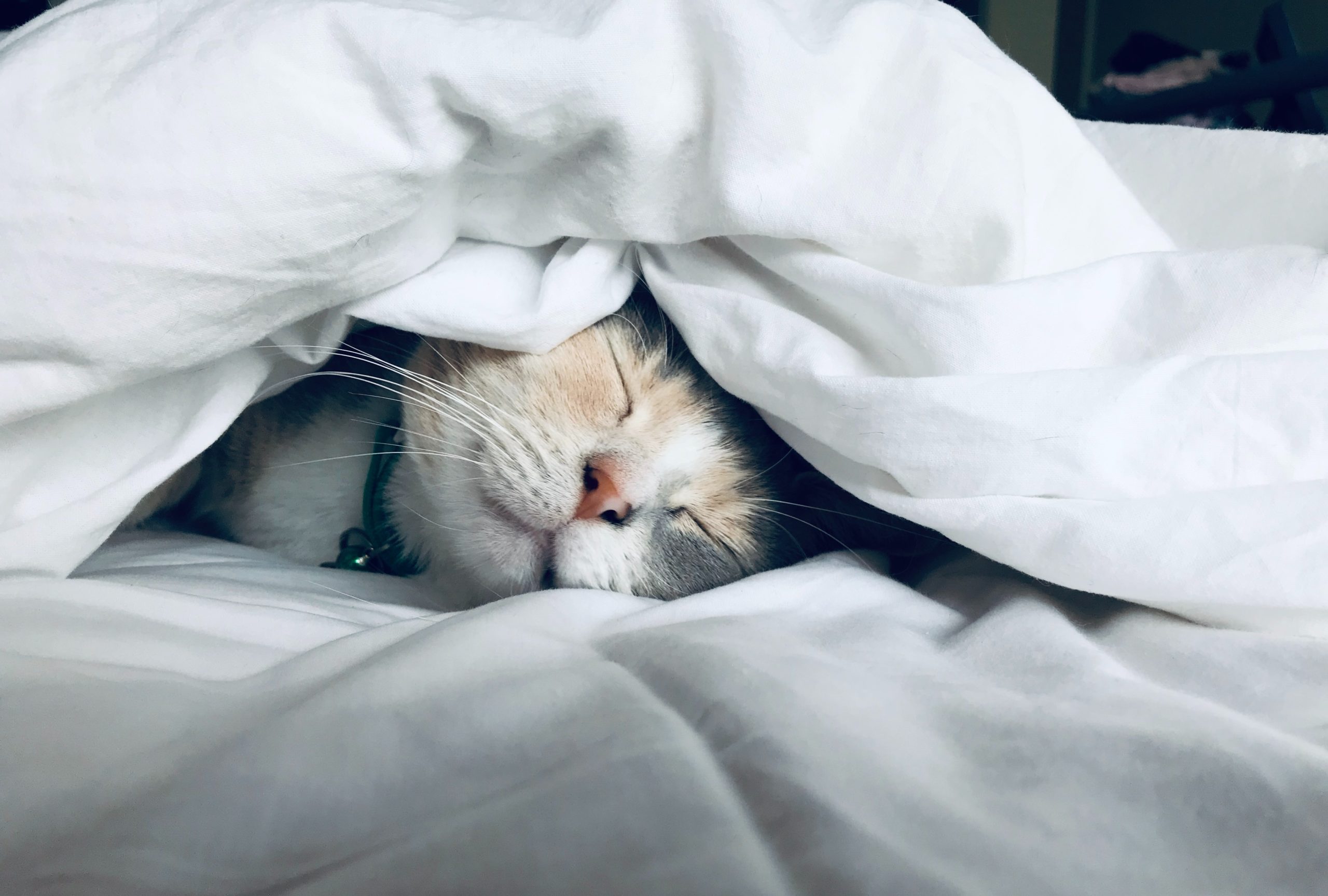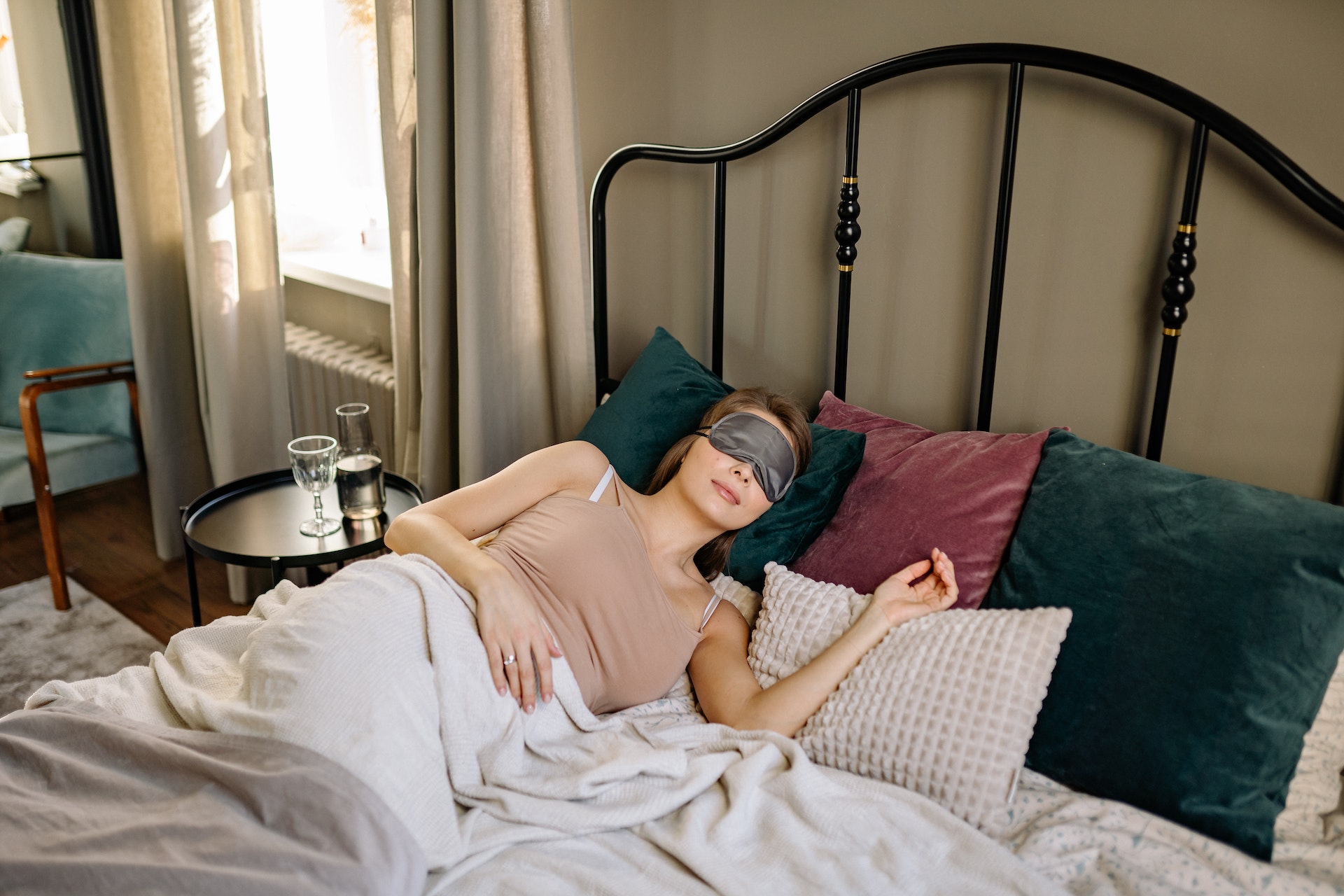Sleeping Well Naturally – The Definitive Guide

If you’ve ever found yourself tossing and turning, counting sheep, or scrolling endlessly through your phone in the wee hours of the morning, then this blog is for you. Sleep is not just a luxury but a vital component of overall well-being.
The Importance of Sleep and Its Impact on our Health
Sleep is more than just a time of rest; it’s a crucial pillar of our health and well-being. During sleep, the body repairs tissues, boosts immunity, and consolidates memories. Without an adequate amount of quality sleep, our cognitive function, mood regulation, and overall physical health can suffer. Chronic lack of sleep has been linked to a myriad of health issues such as obesity, heart disease, and weakened immune system.
Furthermore, poor sleep can impair judgment and decision-making skills while increasing the risk of accidents or injuries. On the flip side, getting enough high-quality sleep enhances concentration levels, promotes emotional stability, and even supports weight management goals. Prioritizing good sleep hygiene is not just about feeling rested in the morning; it’s about investing in your long-term health and vitality.
Common Causes of Poor Sleep
Do you find yourself tossing and turning at night, unable to drift off into a peaceful slumber? Poor sleep can be caused by a variety of factors that disrupt our natural sleep patterns. One common culprit is stress and anxiety, which can keep our minds racing even when our bodies are begging for rest.
Another common cause of poor sleep is an irregular sleep schedule or inconsistent bedtime routine. Our bodies thrive on consistency, so it’s important to establish a regular bedtime and wake-up time to help regulate our internal clock.
External factors like noise, light, or uncomfortable sleeping conditions can also contribute to restless nights. Creating a relaxing sleep environment free from distractions can make a world of difference in improving the quality of your rest.
Additionally, lifestyle choices such as consuming caffeine late in the day or engaging in stimulating activities before bed can interfere with our ability to fall asleep easily. Being mindful of these habits and making small adjustments can go a long way in promoting better sleep hygiene.
Natural Remedies for Better Sleep
Struggling to get a good night’s sleep? Instead of reaching for medication, why not try some natural remedies first? One effective option is incorporating herbs like valerian root or chamomile into your bedtime routine. These herbs have calming properties that can help relax your mind and body before sleep.
Another great natural remedy is aromatherapy. Essential oils like lavender or cedarwood can be diffused in your bedroom to create a soothing atmosphere conducive to sleep. The gentle scent can signal to your brain that it’s time to wind down and rest.
If you prefer something ingestible, consider drinking a cup of warm herbal tea before bed. Options like passionflower or lemon balm are known for their relaxing effects on the nervous system.
And don’t forget about the power of a warm bath with Epsom salts! This simple ritual can help alleviate muscle tension and promote relaxation, setting the stage for a peaceful slumber ahead.
Creating a Relaxing Sleep Environment
Creating a relaxing sleep environment is essential for achieving quality rest each night. Start by decluttering your bedroom and keeping it organized to promote a sense of calm. Consider using soothing colors like soft blues or greens that promote relaxation.
Invest in comfortable bedding and pillows that support your body during sleep. Dim the lights in the evening to signal to your body that it’s time to wind down. Opt for blackout curtains or an eye mask to block out any unwanted light disturbances.
Keep the room cool and well-ventilated, as a comfortable temperature can significantly impact your ability to fall asleep easily. Consider incorporating calming scents like lavender or chamomile through aromatherapy diffusers or candles.
Limit electronic devices in the bedroom as they can disrupt melatonin production and interfere with your circadian rhythm. Create a peaceful bedtime routine that includes activities like reading, gentle stretching, or meditation to signal to your body that it’s time for restorative sleep.
Tips for Establishing a Consistent Sleep Schedule
One of the key elements in improving your sleep quality is establishing a consistent sleep schedule. Going to bed and waking up at the same time every day helps regulate your body’s internal clock, making it easier to fall asleep and wake up naturally.
To achieve this, set a bedtime that allows you to get 7-9 hours of rest each night, ensuring you are well-rested for the next day. Avoid sleeping in on weekends as it can disrupt your routine and make it harder to readjust during the week.
Create a relaxing pre-sleep routine by engaging in calming activities like reading a book or taking a warm bath before bedtime. Limit screen time before bed as the blue light emitted from devices can interfere with your natural sleep-wake cycle.
Avoid caffeine and heavy meals close to bedtime, opting instead for herbal tea or light snacks if needed. Stay active during the day through regular exercise, but avoid vigorous workouts too close to bedtime as they can stimulate your body and mind, making it harder to wind down.
By following these tips consistently, you can train your body to recognize when it’s time for rest, leading to improved sleep quality over time.
The Role of Diet and Exercise in Improving Sleep Quality
Our diet and exercise habits play a crucial role in determining the quality of our sleep. Consuming a balanced diet rich in nutrients can help regulate our sleep-wake cycle and promote restful sleep. Foods like almonds, turkey, and kiwi contain substances that can aid in inducing sleep.
Regular physical activity during the day can also contribute to better sleep at night. Exercise helps reduce stress levels, improve mood, and tire out the body physically for a more restorative slumber. However, it’s important to time your workouts appropriately—avoid vigorous exercise close to bedtime as it may have a stimulating effect on the body.
Incorporating healthy eating habits and regular exercise into your daily routine not only benefits your overall health but also enhances your ability to fall asleep faster and enjoy deeper sleep cycles throughout the night. So remember, what you eat and how active you are during the day can significantly impact your sleeping patterns!
How to Manage Stress and Anxiety for Better Sleep
Managing stress and anxiety is crucial for ensuring a restful night’s sleep. Incorporating relaxation techniques into your daily routine can help calm the mind and prepare you for bedtime. Engaging in activities such as meditation, deep breathing exercises, or gentle yoga before bed can signal to the body that it’s time to unwind.
It’s also important to address any underlying issues that may be contributing to your stress levels. Talking to a therapist or counselor can provide valuable insights and coping strategies for managing stress effectively. Additionally, practicing mindfulness throughout the day can help prevent worries from keeping you up at night.
Creating a bedtime routine that includes activities you find soothing, such as reading a book or taking a warm bath, can signal to your body that it’s time to wind down. Limiting screen time before bed and creating a peaceful sleep environment free of distractions can further promote relaxation and better sleep quality.
Alternative Therapies for Insomnia
For those struggling to find relief from insomnia through conventional methods, alternative therapies offer a holistic approach to improving sleep quality. Acupuncture, an ancient Chinese practice involving the insertion of thin needles into specific points on the body, is believed to rebalance energy flow and promote relaxation. Herbal remedies like valerian root and chamomile tea have been used for centuries as natural sleep aids due to their calming effects on the mind and body.
Mindfulness meditation focuses on being present in the moment, helping individuals quiet racing thoughts that often keep them awake at night. Aromatherapy using essential oils like lavender can create a soothing atmosphere conducive to restful sleep. Massage therapy relaxes tense muscles and promotes circulation, aiding in physical relaxation before bedtime.
Yoga combines gentle movements with deep breathing exercises to reduce stress and tension accumulated throughout the day. Cognitive-behavioral therapy for insomnia (CBT-I) addresses thought patterns and behaviors that contribute to poor sleep habits, teaching techniques to improve sleep hygiene and promote better rest.
Technology and its Effect on Our Sleeping Habits
In today’s digital age, technology plays a significant role in our lives – including how we sleep. The blue light emitted from screens can disrupt our natural sleep-wake cycle by suppressing melatonin production. This makes it harder to fall asleep and stay asleep throughout the night.
Constant connectivity through smartphones and social media can also lead to increased stress and anxiety, making it difficult to unwind before bed. The temptation to check notifications or emails right before sleeping can interfere with our ability to relax and prepare for rest.
Moreover, binge-watching TV shows or scrolling through endless content on tablets can result in delayed bedtime, cutting into valuable hours of sleep. The stimulation from engaging with screens late at night can keep our brains alert when they should be winding down for rest.
To combat these effects, consider implementing tech-free zones in your bedroom and establishing a digital curfew an hour before bed. Creating a calming bedtime routine that doesn’t involve screens can help signal to your body that it’s time to unwind and prepare for a peaceful night’s rest.
Conclusion
Prioritizing good sleep is essential for our overall health and well-being. By understanding the importance of quality sleep, identifying common causes of poor sleep, implementing natural remedies, creating a relaxing sleep environment, establishing consistent sleep schedules, focusing on diet and exercise, managing stress and anxiety effectively, exploring alternative therapies for insomnia when needed, being mindful of technology’s impact on our sleeping habits – we can all work towards achieving better sleep naturally.
Remember that small changes can make a big difference in improving the quality of your sleep. So take care of yourself by adopting healthy sleeping habits and making restful nights a priority in your life. Sweet dreams!
Disclaimer: this article does not constitute either medical or any other type of advice. The article contains the author’s personal opinion and personal conclusions and observations. If you have sleep problems or interested in other issues related to it, it is better to consult medical expert e.g. your doctor etc.









